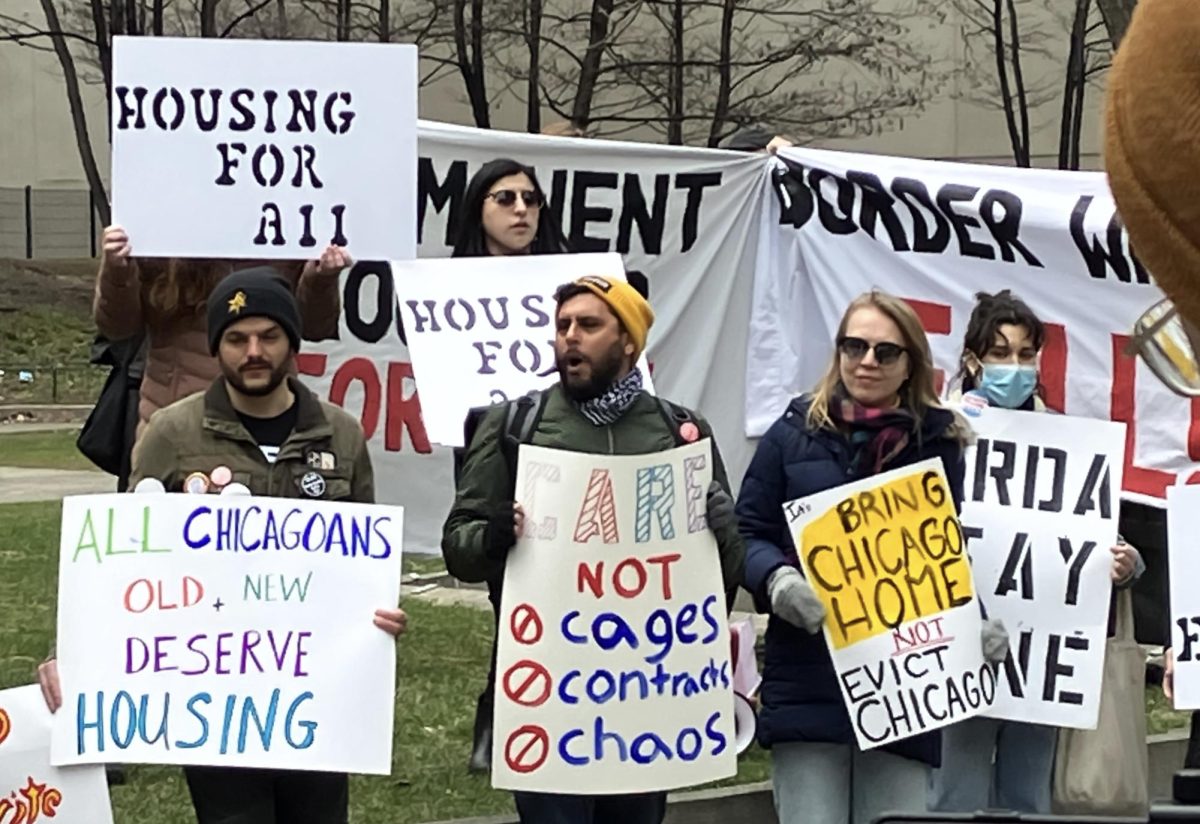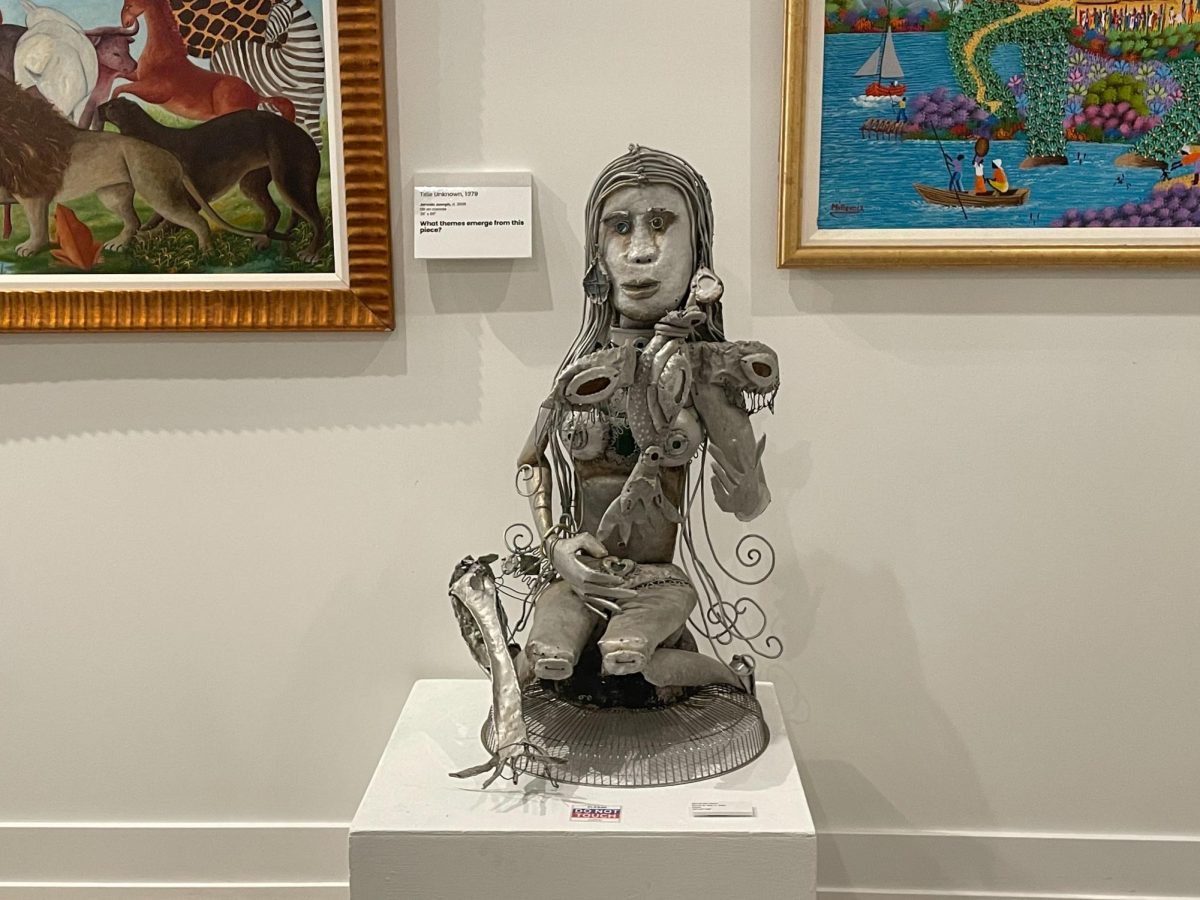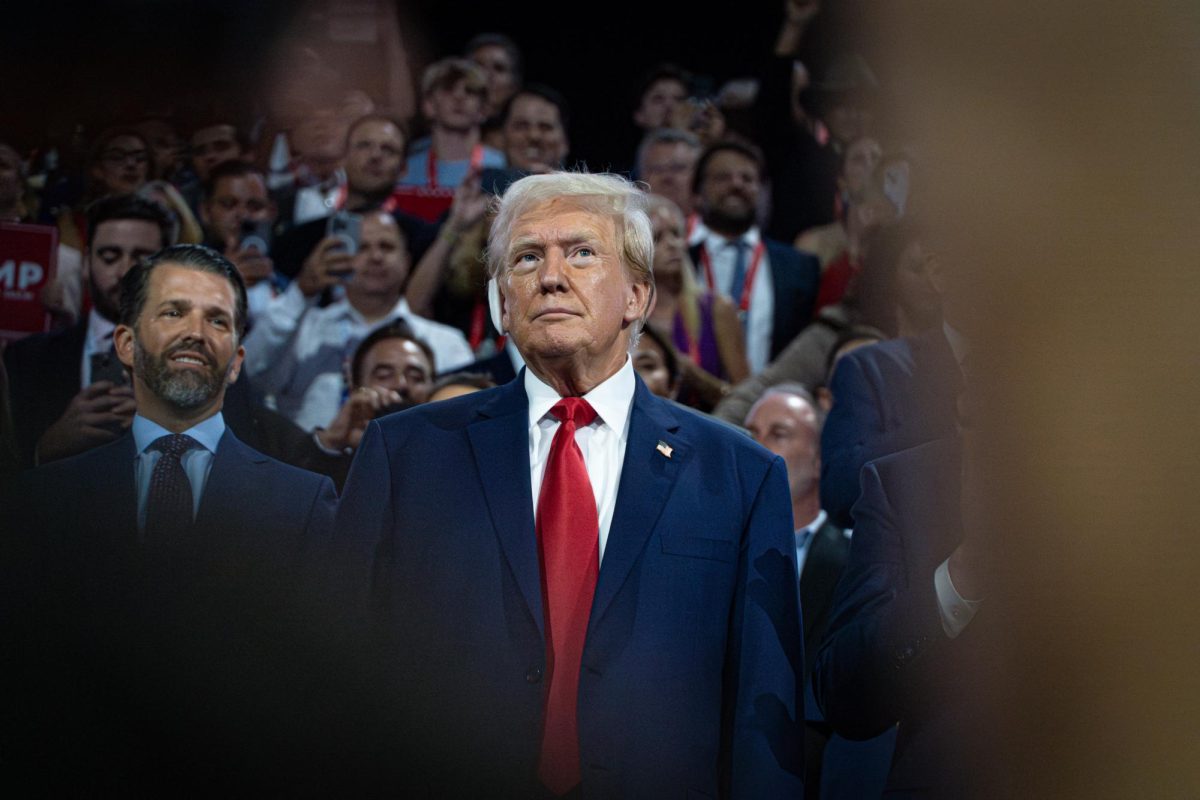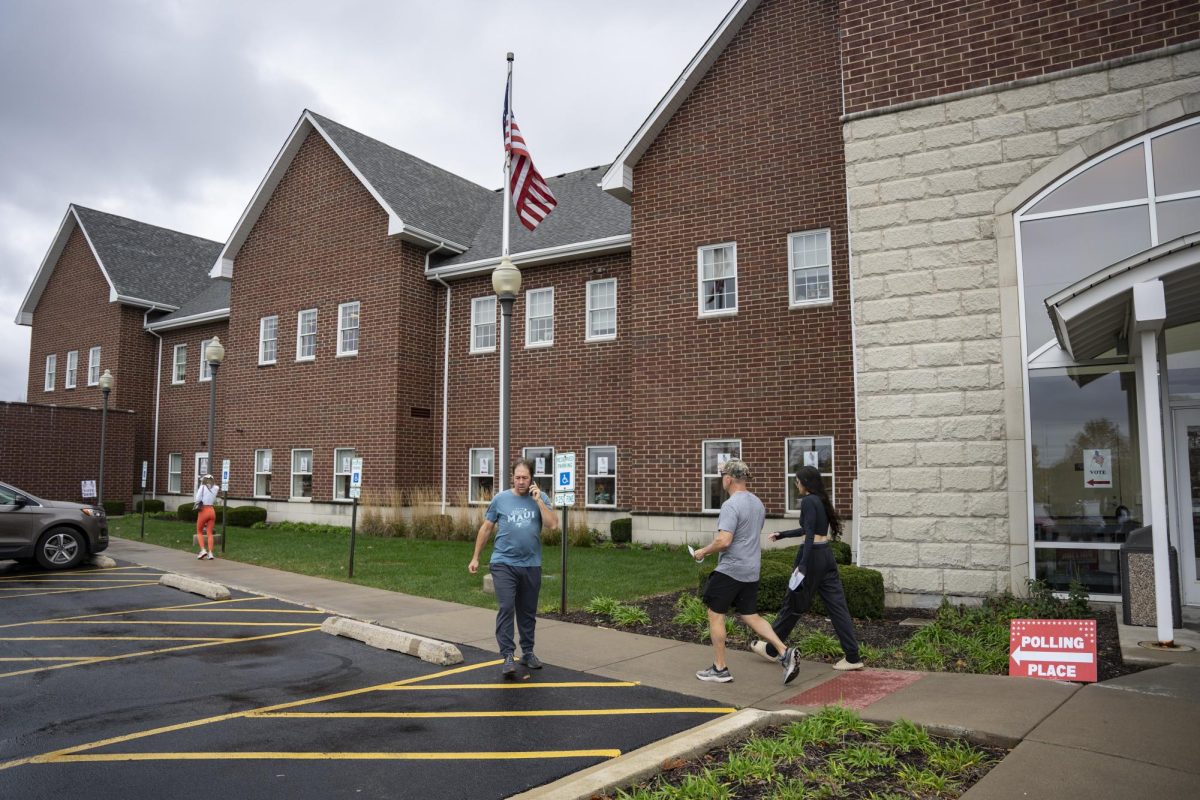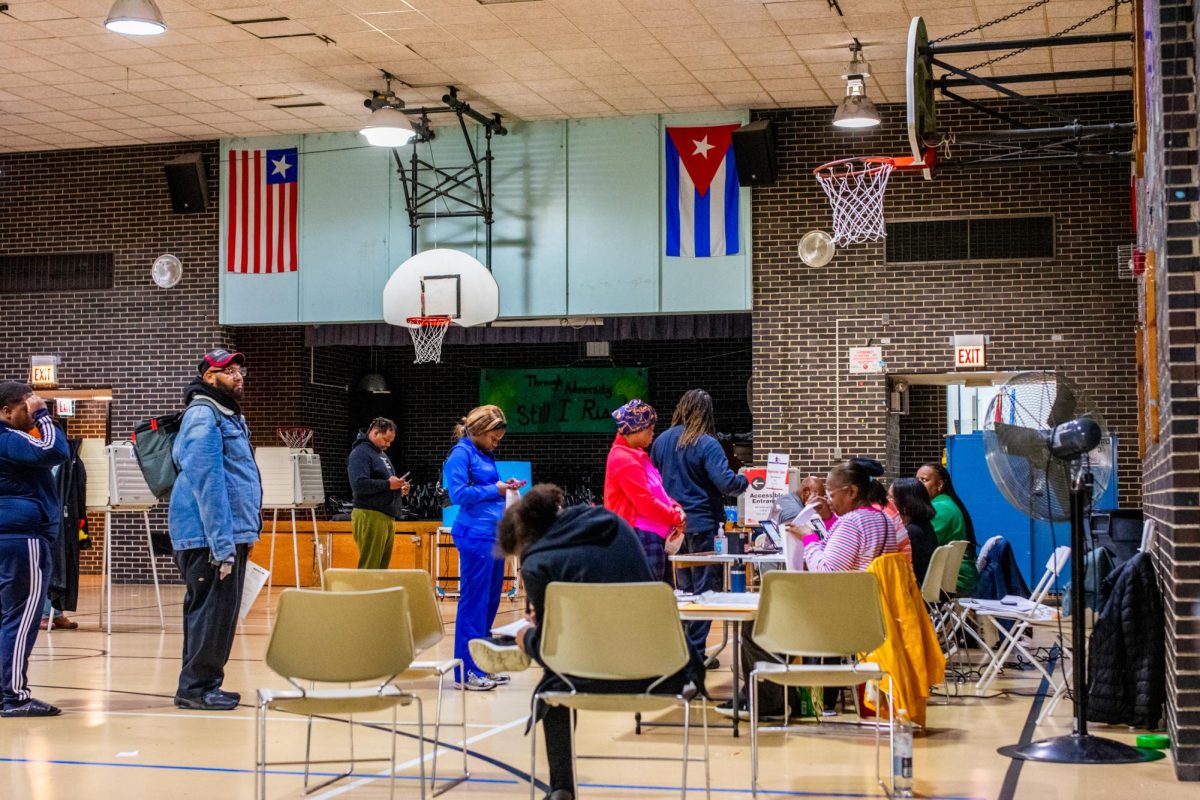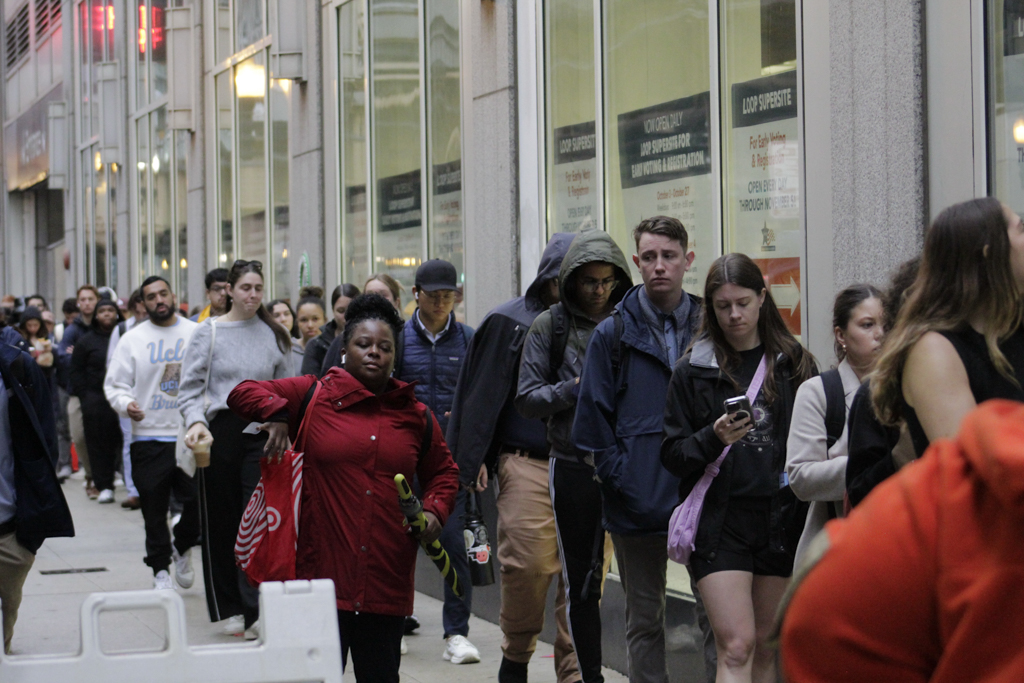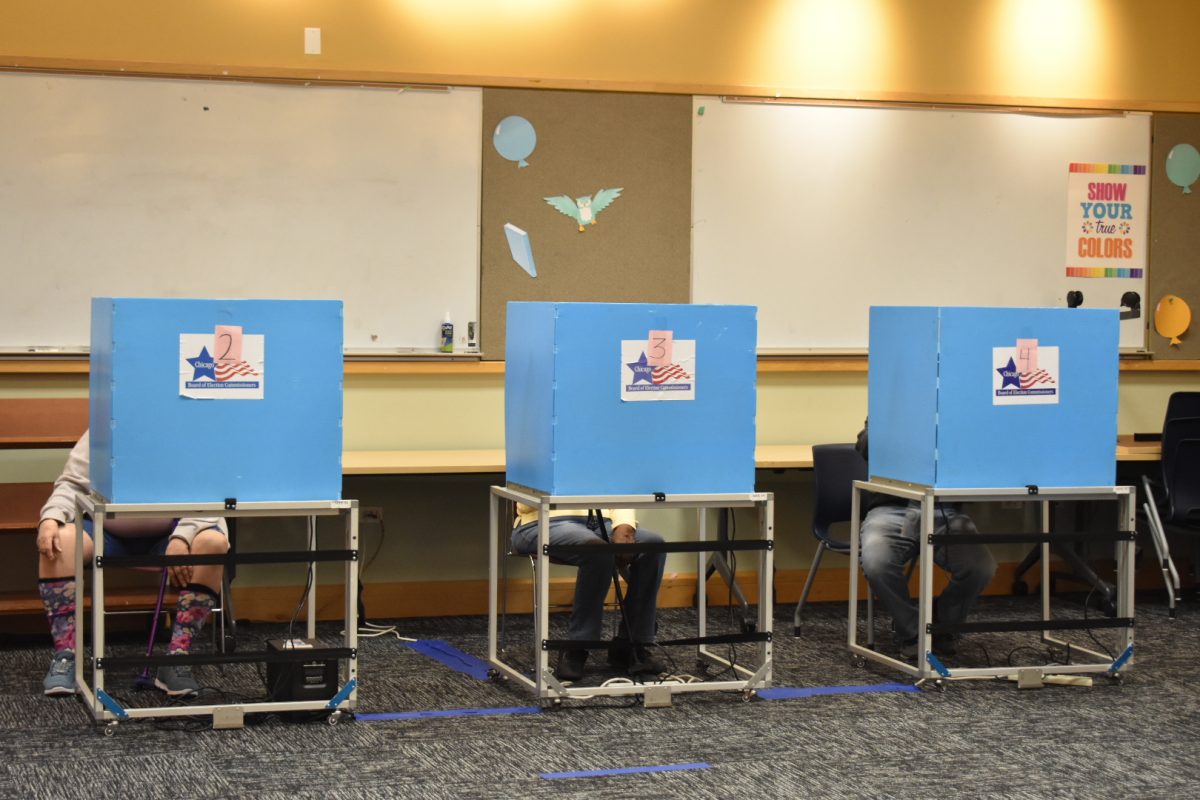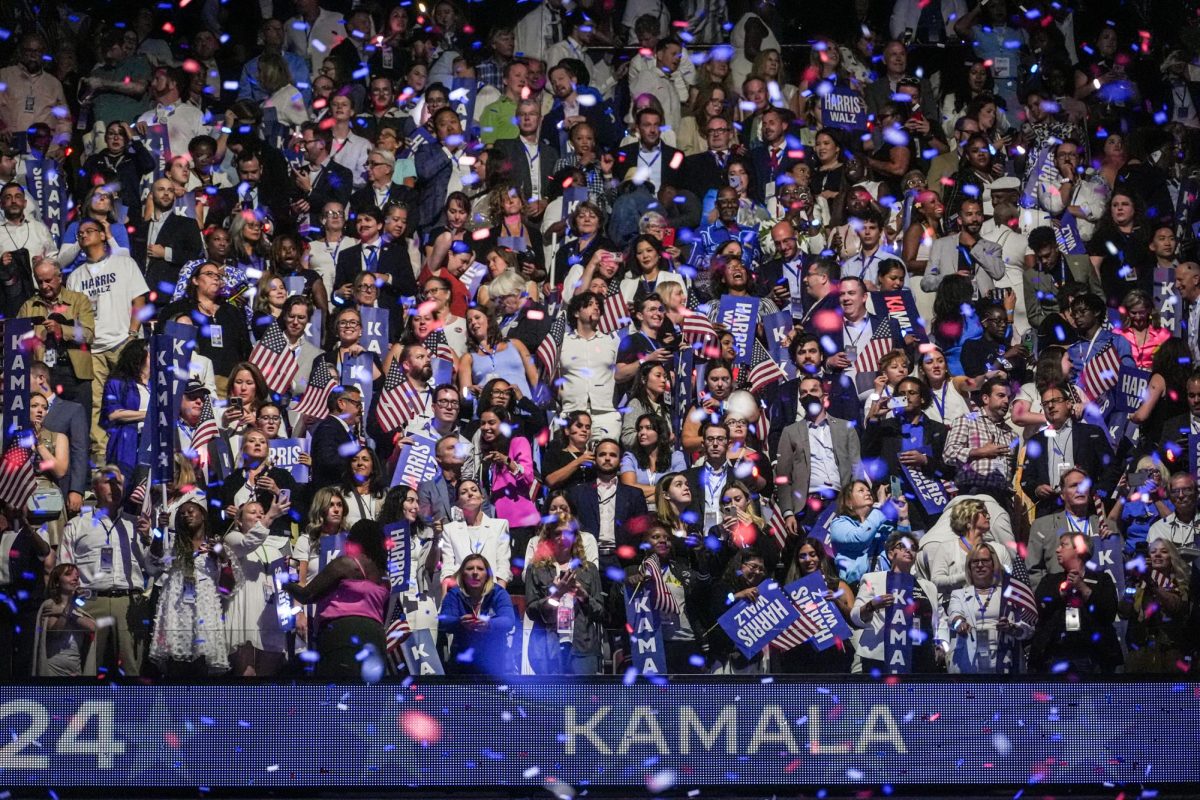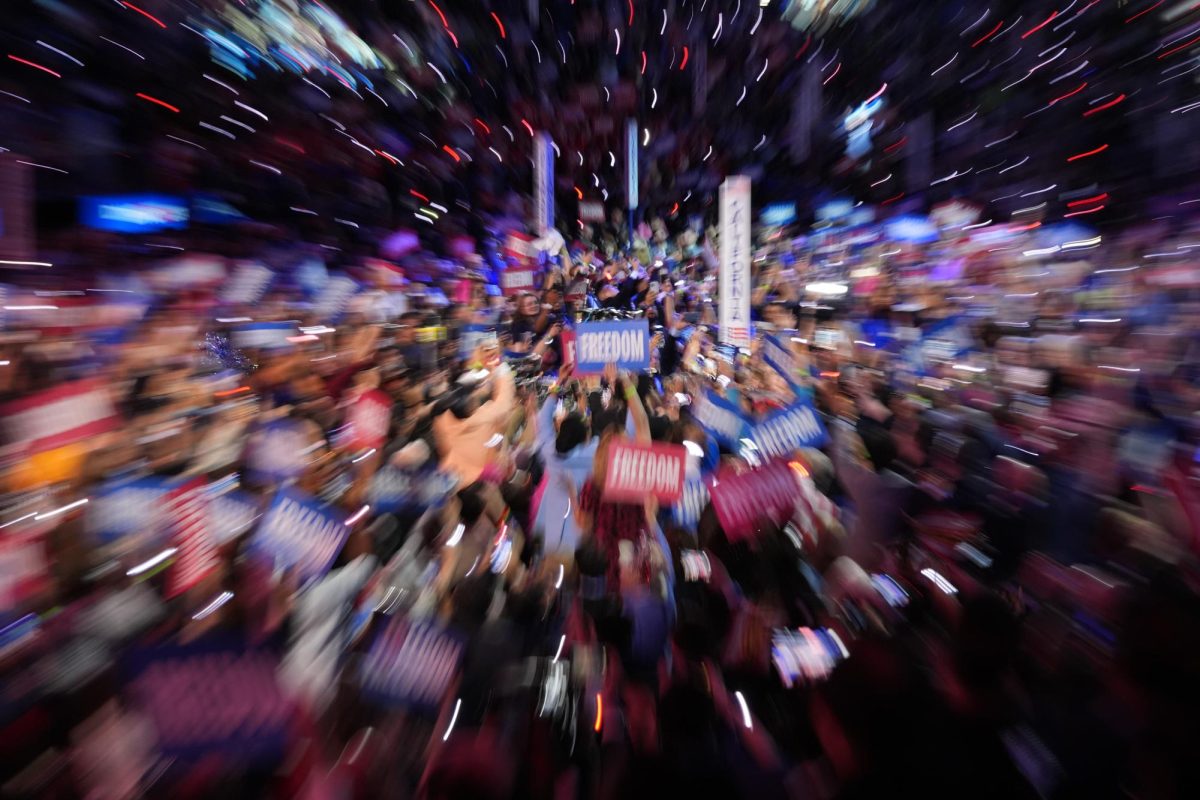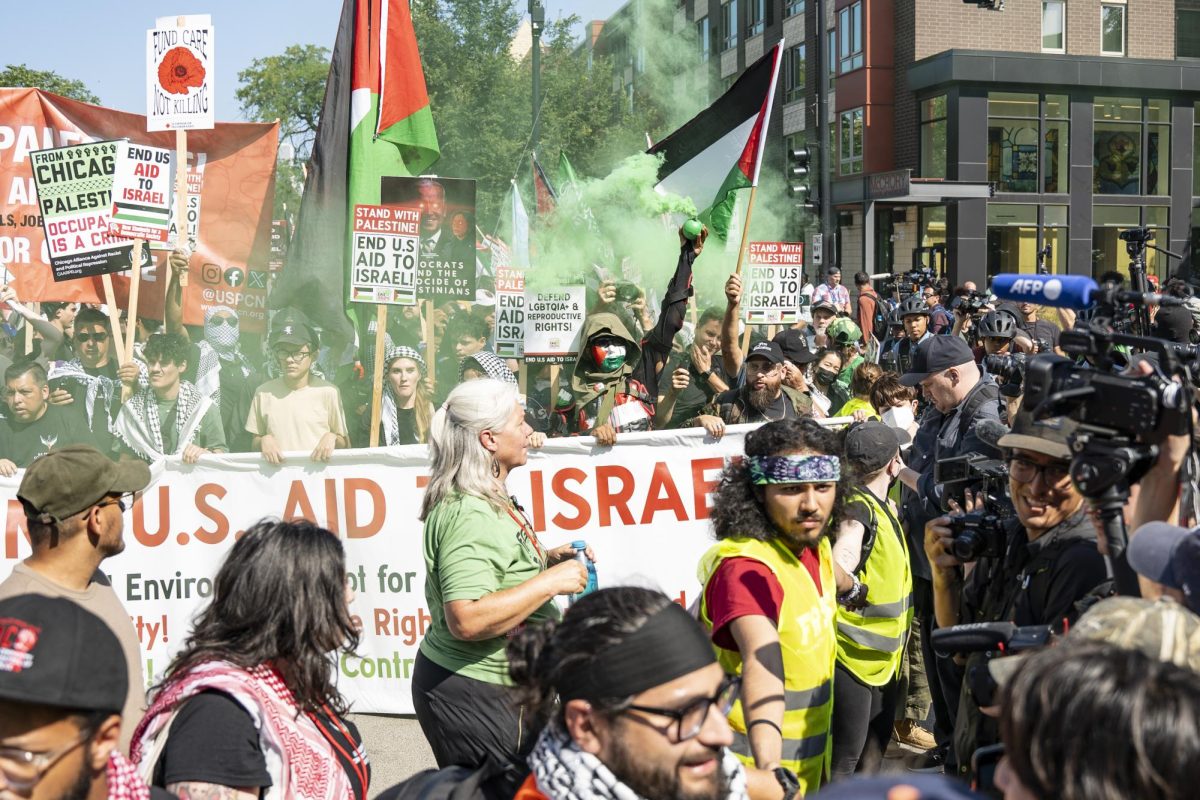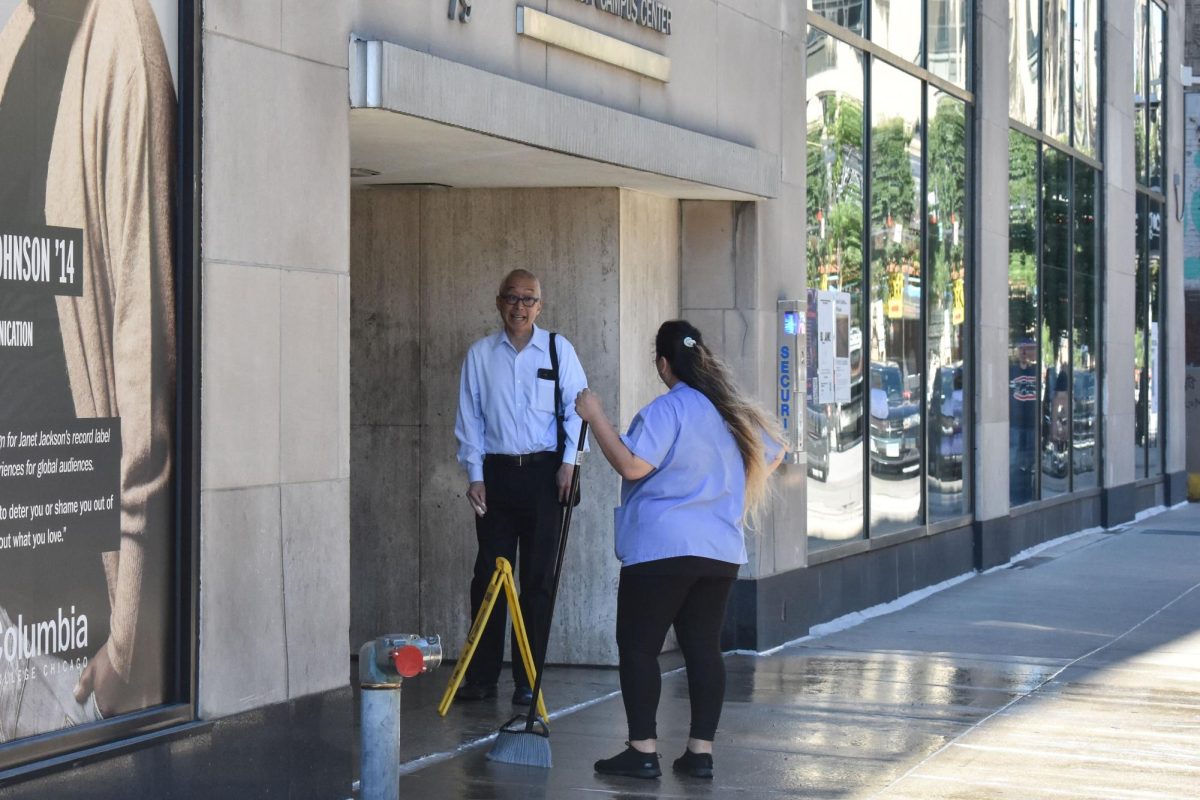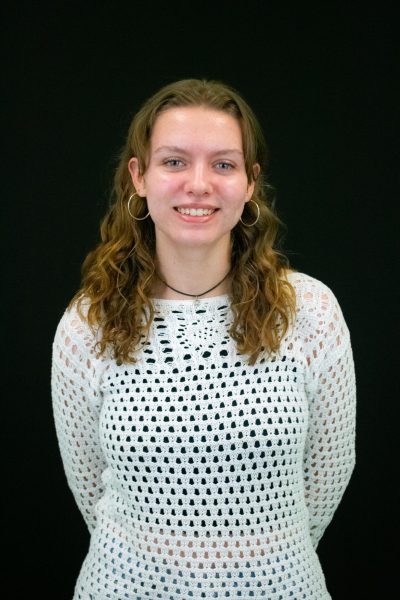Dozens of migrants and advocates gathered on the corner of Van Buren and State streets near campus on Saturday, March 9 to protest the policy that forces migrants out of shelters, potentially leaving them with nowhere to go.
Chicago Mayor Brandon Johnson announced in November that migrants would need to leave the city’s shelters after 60 days. The policy’s start date was pushed back several times because of winter weather, but it is now set to go into place on March 16.
Under the new policy, migrants with “extenuating circumstances” can receive extensions to their stay. If their application for a stay extension is not approved, they have the option to return to the starting point for new arrivals to request to be placed in a new shelter.
Miguel Alvelo, executive director of Latino Union of Chicago, said it is hard for migrants without work permits to get a lease and move into permanent housing.
The Latino Union of Chicago is one of the coalition groups that organized the protest, where many voiced their concerns about where the migrants will go after being forced out.
“That’s the other part of the problem,” Alvelo said. “They’re going to have to find housing on their own and pay. So, how are they going to get that?”
Since the end of August 2022, nearly 40,000 migrants have arrived in Chicago, the majority of them fleeing a social and humanitarian crisis in Venezuela.
Manuel Contrera, 33, came from Venezuela with his family three months ago with the vision of working their way to financial stability. That hasn’t happened.
“Working is what we want,” he said in Spanish. “If things were made easier for us through work, we would not bother anyone, because that was our mission: to come here to work and look for a future for [our] family.”
The city currently has 28 temporary shelters. The Harold Washington public library, near where the activists gathered on Saturday, had served as a temporary warming shelter for migrants when temperatures in the city fell below zero this winter.
Antony Materan, 21, of Venezuela, said he has struggled to build a future for his wife and his kids. When they arrived in July 2023, Materan and his family stayed in a shelter before moving into an apartment. It was an important step toward independence, but since then, they have had trouble finding work to pay the rent.
“We don’t know where to go after the rent is due,” he said in Spanish, “and we are very distressed for that reason. We want to get the kids ahead and be able to work and get ahead with them. In some places, they require a work permit, and in other places, they reject us because we are immigrants.”
Last month, Illinois Gov. J.B. Pritzker and the Cook County Board announced $250 million to be allocated for migrant care. The money will be used to maintain shelter capacity and provide healthcare services.
Kathryn Zamarron, one of the speakers at the protest, said the money should be used for “making sure that folks stay in shelters,” as the unpredictability of their living situations causes chronic stress for families. She also believes the city should focus on the living conditions at shelters.
“We need to maintain the floor that we’re at, but we also need to improve the situation,” she said. “We know Chicago is the best city in the world – it’s time we act like it.”
Resumen en Español
El sábado, hubo una protesta por la intersección de Van Buren y State St. contra la política del Alcalde de Chicago Brandon Johnson, que será implementada el 16 de Marzo. La política no permite que los migrantes se queden en los refugios por más de 60 días. Hablaban de la falta de planes de a dónde vivirían los migrantes tras ser desalojados, y del acceso a los permisos de trabajo.


